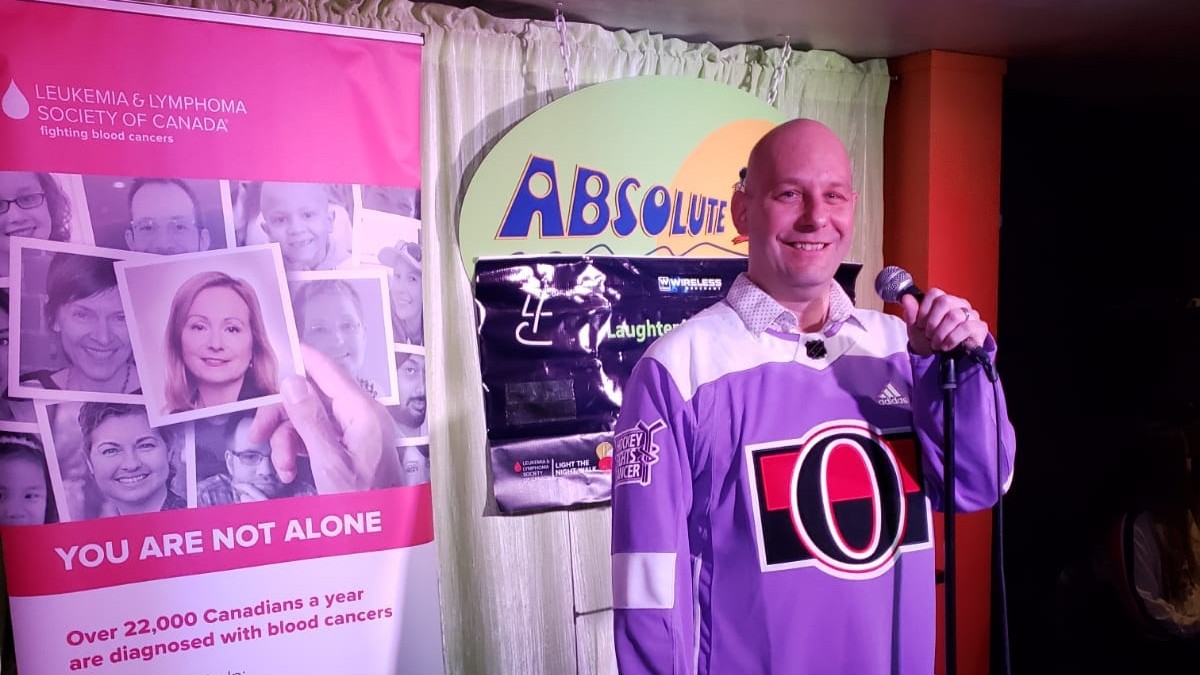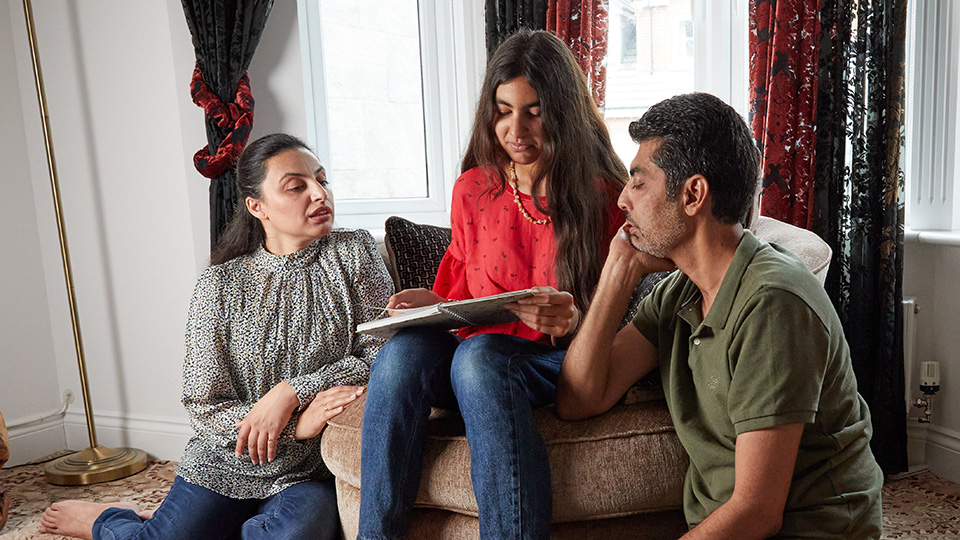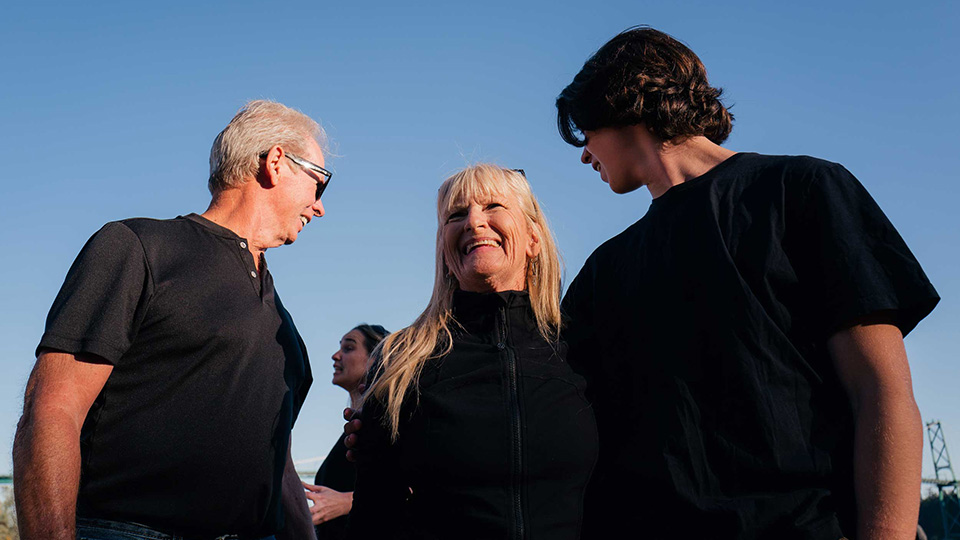
'Not broken, but reborn'
Meet Rosario
Rosario is a dedicated mother, a passionate artist and in 2021 was diagnosed with stomach cancer, but she never felt like a patient.
As a Hematology product specialist for Bristol Myers Squibb in Monterrey, Mexico, her focus has always been on helping patients.

Rosario’s son, Fernando, is her right hand in her home art studio. He supports her work by importing materials, purchasing the ovens used for her glass art and by following in her footsteps — Fernando is also an artist, now experimenting with working with glass.
One Sunday in 2021, Rosario, now 52, began her own journey as a patient. That day, her legs were swollen. And they hurt. As someone who was otherwise in good health, this was a red flag for Rosario. She had also gained a few pounds that month, too — another red flag.
“That was strange because it’s very difficult for me to gain weight — I have always been skinny,” she said.
After routine testing, Rosario was diagnosed with stage 2 stomach cancer. Now she was a patient.

Rosario started working with glass 12 years ago. She says glass is a “magical material” that can be molded into something as fragile or as strong as we can imagine.
The plan to stay alive
“When I read the results, I was at a meeting of all resident doctors and nurses at the University Hospital of Monterrey,” Rosario recalled. “I was in shock, but I couldn’t let myself cry. I didn’t feel like crying anyway. I had to plan what I was going to do to stay alive.”
“I jumped into action — I called my medical insurance and began researching ways of saving myself. This type of cancer can kill people within three months,” she said.
She knows this because she lost five family members to stomach cancer.
Rosario met with an oncologist who informed her that she had a malignant tumor in her stomach that would need to be removed. Rosario moved with urgency.
“With stomach cancer, there is no time,” she said.
The impact of gastric cancer
More than one million people around the world are diagnosed with gastric cancer — or stomach cancer — each year. Survival rates vary based on many factors, including whether the cancer is still contained in the stomach or has spread. Treatment also varies from person to person based on a number of factors, and may include surgery, chemotherapy, radiation, targeted therapy, immunotherapy or a combination of treatments.
Race to the operating room
Prior to surgery, Rosario informed her son and daughter, who are the “engine” that keeps her running, of her diagnosis and treatment, which was, “an exceedingly difficult conversation to have.”
She scrambled to close pending projects at work because, “I didn’t know what was going to happen to me.” She was told her to drop everything and focus on herself. “But I just had to make sure everything was in order before I went into the operating room.”
Rosario underwent surgery and had 80% of her stomach removed.
“I didn’t feel like a cancer patient, and I did not feel like I was dying,” Rosario said. "I stayed very strong during the treatment.”
Not broken, but reborn
Two years later, life looks a little different for Rosario. She gets tired more easily. She lost 40 pounds from her already petite frame. “The weight of my suitcase with a laptop and iPad has actually knocked me to the ground during work trips,” she said.

Rosario’s latest glass art series, titled “Rebirth,” is on exhibit in the atrium of a hospital in her town. She recently visited the exhibit with her doctor and fellow BMS employee, David Misael López, and his family. Rosario considers her colleagues and medical team part of her extended family.
But she is happy. She finds peace and healing through her art. After many years as a painter, Rosario pivoted 12 years ago to working with glass and her pieces are planned for exhibit in nine museums and galleries across the Americas and Europe. She uses her art to tell her story.
“Glass is very fragile, but at the same time, it’s extraordinarily strong. It can be recycled, reassembled, reborn. Human beings, just like glass, can break, and we can be put back together and become indestructible,” she said.
Her art is healing for others, as well.
“What fills me with satisfaction is that I can support people through my art. I call them healing pieces. I have seen people examine my work and cry when they see themselves in the pieces and say, ‘That’s me, I broke down and came back stronger.’ I want them to know cancer does not have to mean death. You can pick up your little pieces, stick them back together and make yourself stronger, wiser and more beautiful.”

Rosario’s latest glass art series, titled “Rebirth,” is on exhibit in the atrium of a hospital in her town. She recently visited the exhibit with her doctor and fellow BMS employee, David Misael López, and his family. Rosario considers her colleagues and medical team part of her extended family.
A new perspective
Rosario now uses her experience to enhance the commitment she already had to patients long before her diagnosis.
“I have always been very committed to helping patients, but now, I have lived as a patient and can speak as a patient,” Rosario said.

Rosario's journey, her work at BMS and her art are all interconnected in this piece she created, title "Love." Rosario said it represents BMS' values, and "how through our values, we can help put together all the broken pieces of a patient and they can be alive and their heart can carry on beating." The vertical light blue dots on the lower front section represent formally — the patients themselves as well as the family members who support them.
What to know about gastric cancer:
- Gastric cancer, or stomach cancer, falls under gastrointestinal cancers, which also includes colorectal, esophageal and liver cancer.
- Gastric cancer is the fifth most common cancer globally, with more than 1 million cases diagnosed annually.
- In Canada, approximately 4,000 people will be diagnosed with stomach cancer this year.
- More than 95% of stomach cancers are adenocarcinoma, which develops in the cells that form the innermost lining of the stomach.
- Stomach cancer is nearly twice as common in men as in women.
- Gastric cancer mostly affects older people: 6 out of every 10 people diagnosed with stomach cancer are 65 or older.
About Bristol Myers Squibb
Bristol Myers Squibb is a global biopharmaceutical company whose mission is to discover, develop and deliver innovative medicines that help patients prevail over serious diseases. As global citizens, we work sustainably and responsibly to create a positive impact in the communities where we live and work.


